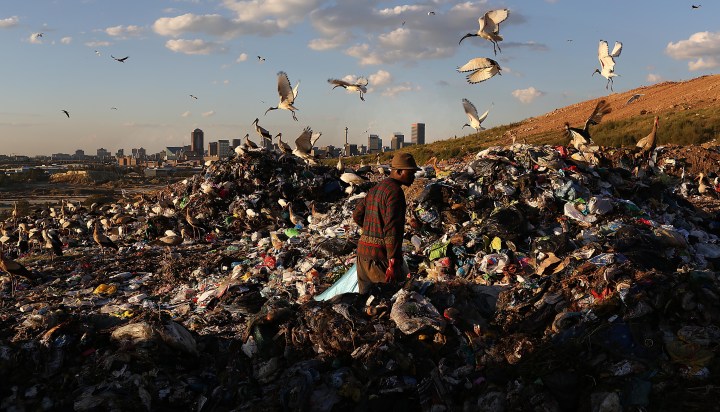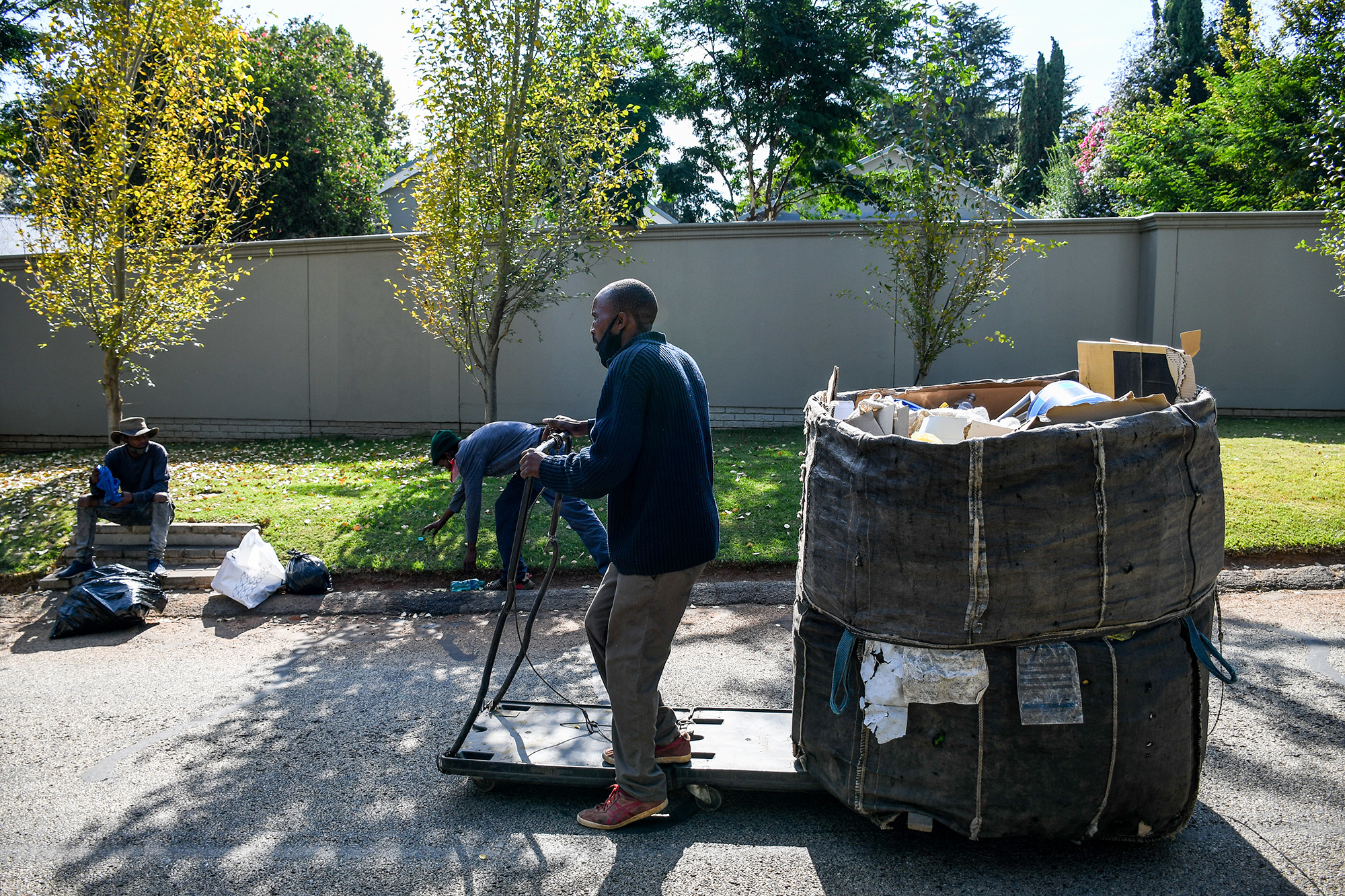LAY TO WASTE OP-ED
SA needs to put our waste in the ‘proper’ place, reduce the production and extend its value

There is no ‘away’ to send our waste to. If it’s not biodegradable and it’s not being recycled, re-used or converted into energy (and most of it isn’t), then it goes to landfill or becomes litter.
In 1987, a barge carrying over three thousand tonnes of trash destined for North Carolina from New York became a floating symbol of America’s waste problem as it travelled along the country’s East Coast with no place to offload. The vessel was turned away at every port over concerns it was carrying hazardous waste.
The spectacle attracted not only flies and journalists but stood as a reminder to Americans that they were producing too much waste. Within several years of the incident, many American states passed laws requiring some kind of municipal recycling.
This story has been retold numerous times, reaching almost folklore status as having a profound impact on recycling in the US.
It’s a cautionary tale that there is no “away” to send our collective waste to if it’s not biodegradable and recyclable, or converted into energy — and most of it isn’t.
In South Africa, if you are lucky enough to live in a neighbourhood where waste is collected at least once a week, you are among six out of 10 households that benefit from this public service nationally — a service that has suffered a sharp decline over the past decade. When the rumbling garbage truck tips your wheelie bin into its mechanical bowels and leaves, there is little social or economic incentive to think about where it’s headed.
Since nine out of 10 metropolitan households do not separate their waste at home for recycling, most of our waste is headed to landfill — and this has consequences for all of us.
Read more in Daily Maverick: Myth busting: recycling is not the silver bullet many believe
South Africa creates an estimated 122 million tonnes of waste per year — with an average of 41kg of plastic waste per citizen. It’s reported that 10% of our waste is recycled or re-used, while the rest goes to landfills, or is dumped illegally.
Waste in over-flowing and poorly managed landfills releases methane, a powerful greenhouse gas responsible for approximately 30% of global warming since pre-industrial times. Globally, the waste sector is the third largest source of methane emissions accounting for approximately 20% of emissions. In landfills, these emissions result from organic waste decomposing.
In South Africa, people living near dumps or landfills are likely to live in underserved informal settlements with poor living conditions and limited access to healthcare services. Living in proximity to waste sites has been shown to put them at greater risk of long-term illness.
Solving South Africa’s waste problem isn’t about putting our waste in the “proper” place, it’s about reducing waste production and extending the value of the waste created. This means designing products to be durable, repairable, reusable, and fully recyclable or compostable and championing a circular economy — a model of production and consumption that extends the lifecycle of products.
Producers of fast-moving consumer goods
Since 2021, it’s mandatory for all paper and packaging manufacturers in South Africa to ensure their waste is recycled, reused, or converted into something else. Extended Producer Responsibility (EPR) regulations mean companies must take responsibility for the volumes of waste they’re producing.
But it’s not enough for a collective response. Our government needs to go further to make sure that packaging producers limit the amount of non-recyclable material they are creating, particularly single-use, problematic and unnecessary plastic products that are clogging up rivers and landfills.
Informal waste sector
Consumers who sort their household waste can only recycle if the infrastructure for collecting and processing their waste exists, and this varies across cities. Cape Town has the highest percentage of households that use a kerbside collection service for recyclable materials compared to other cities in the county (at just 9.6%). In many neighbourhoods, residents rely on informal waste reclaimers to collect recyclables from their household trash.

Douglas Mali and Refuoe Mokuoane collecting recyclable materials in the suburbs of Sandton. (Photo: Julia Evans)
More than 90,000 waste reclaimers are estimated to be working in the informal waste economy. In 2014, these waste reclaimers were reported to have saved municipalities between R309-million and R748-million in landfill airspace just by diverting recyclables from landfills.
Read more in Daily Maverick: Dignity – and a sustainable life – for unsung recycling heroes
Clearly, we have assets in place (in legislation, regulations, and a massive informal sector) to create change around South Africa’s waste problem.
We also have a vibrant civil society sector that incentivises recycling, zero-waste initiatives, and projects that divert organic and other waste from landfills.
To create change around our waste problem, we need a groundswell of individual and collective action from governments and producers to consumers.
We need to reframe our approach to waste, from a mindset of waste removal to thinking about it as a problem of generation. If we want less waste, we need to make less waste. Because there is no “away” for the stuff we discard.
If you want to learn more about how you can create change, visit changewaste.dgmt.co.za, a new digital resource to inspire collective action and advocacy. DM
Rahima Essop is the Communications Director of the DG Murray Trust (DGMT). She holds a master’s degree in social anthropology of development from SOAS, University of London. DGMT is a public innovator through strategic investment and is interested in building productive synergies between communities and their environment.





 Become an Insider
Become an Insider
Part of the issue is that NOT littering and keeping your garbage with you till you can find a bin isn’t taught by many as a value by parents to their children.
Kids also don’t have a consistent message from their schools either about not littering, and many schools fail to recognize this is an important lesson that can be linked to many other subjects, if done correctly.
Then kids ride in taxes and many taxi drivers just throw their litter out the window, including glass bottles, so the very wealthy taxi associations don’t take up the challenge. They could demand the drivers don’t throw out the litter, have signs in the taxi and provide a rubbish bag to collect litter. But they don’t.
Then there is the myth by all who litter that by throwing my can out the car the waste recyclers will pick it up, therefore I’m providing employment. This is a Bullsh*t narrative that gets told to shirk their responsibility.
Then the ever inept City doesn’t provide many more bins that are regularly cleaned, we probably need better designed public bins too, nor is there any city and region wide public awareness campaign to inculcate a culture of not littering. Ita not a priority.
In Namibia they refer to South Africa’s ubiquitous litter as the national flower.
The African National Corruption party isn’t really concerned about this issue either, the job of looting takes up too much of their energy.